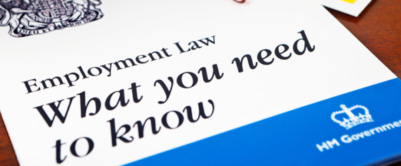Licensing laws to be relaxed during Euro 2024 | Consensus HR in Herts, Beds
Latest blog:
The UEFA EURO 2024 kicks off in Munich on Friday 14th June 2024 and ends with the final in Berlin on Sunday 14th July 2024 but how could this affect businesses and their teams and what action should be taken?
Employee Productivity and Engagement: The EURO 2024 tournament may lead to distractions in the workplace as employees follow matches or engage in discussions about the games. While some level of excitement and camaraderie can be beneficial for team morale, excessive distractions could affect productivity. Employers may want to establish clear guidelines regarding acceptable levels of engagement with the tournament during working hours and provide flexibility for employees to watch matches during breaks or after work. Additionally, organising internal events such as viewing parties or office sweepstakes can help channel employees’ enthusiasm in a positive way.
Overall, UK businesses should proactively assess the potential impacts of the EURO 2024 tournament and take appropriate actions to capitalise on opportunities while mitigating any challenges. By staying agile, communicating effectively with stakeholders, and embracing the spirit of the tournament, businesses can navigate this period successfully and emerge stronger.
Employers should also note that should either England or Scotland reach the Euro 2024 semi-finals this summer, fans back at home will be able to stay celebrating for an extra two hours if they are in premises already licensed until 11pm for the sale of alcohol for consumption on site.
In a statement to Parliament, available here, the Minister for Crime, Policing and Fire, Chris Philp, confirmed that the Government was proceeding with a proposal to relax licensing hours in England and Wales.
There have been calls for licensing boards in Scotland to follow the UK Government’s example.
The lifting of restrictions will apply on the days of the semi-final (9 and/or 10 July) and final (14 July) of the tournament, provided one of the two Home Nations is represented.
“The Government consider the semi-final and final of the tournament to be an occasion of exceptional national significance and an extension to licensing hours will enable communities to come together at their local licensed premises to support any of the Home Nation teams if they reach the later stages of the tournament and celebrate any subsequent success,” Mr Philp told MPs.
This will, he went on, provide support to the hospitality sector by enabling businesses to extend their trading hours if they so wish.
The Minister’s statement followed the publication of the Government’s response to a consultation which closed on 19 February 2024, and which had asked for comments on the proposal for the extension.
Details of the Home Office consultation and the Government’s response can both be found on the GOV.UK website.
As is usual with these consultations, it lists the number of responses (96 in this case) but also notes that “31 contained no relevant information to any of the questions”.
Of those who did send usable replies, the majority agreed with the proposed extension of opening hours and that the order should only apply to the sale of alcohol for consumption on site in licensed premises in England and Wales.
The minority who disagreed cited potential health impacts or harms and the possibility of increased crime and disorder.
Licensing laws to be relaxed during Euro 2024 | Consensus HR in Herts, Beds – Note for employers.
For employers hoping to take advantage of these extended hours, there are a few things they need to consider. First, unless they are going to rely on staff voluntarily agreeing to work until the later closing time, they will need to check that their contract permits them to change working hours. A guaranteed or compulsory overtime clause may be of use, depending on its wording, or if there is flexibility built into the working hours clause in the contract.
Another issue to consider is the impact on employee rest breaks, and the impact finishing later will have. If an employee’s shift is extended, they may become entitled to a rest break. Or, if they are scheduled to start early the next day, finishing later could prevent them from getting their full daily rest. As it is unlikely this would fall within the exemptions under the Working Time Regulations 1998, compensatory rest may not be possible.
Finally, employers will have to consider the availability of transport for staff at the altered closing time. Public transport may not be available at that time, which could impact how the employee gets home safely. This might therefore limit which staff members can be asked to work.
HRinform & Consensus HR




To view more about our range of HR & Employment Law Services
Are you concerned about keeping your business up to date with Employment Law changes?
Your Outsourced Human Resources (HR) Department.
For further information on any of the HR subjects we provide, please click the heading below:





